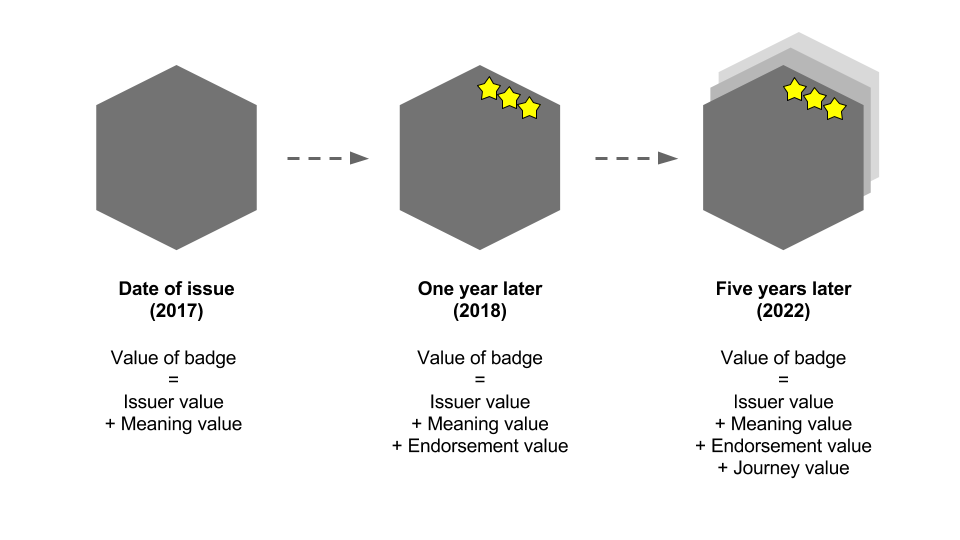Elevator pitch on Open Badges for SQA Expert Assessment Group
Update: Martin Hamilton from Jisc kindly recorded my elevator pitch. You can watch it here.
Tomorrow, I’m in London to take part in the Scottish Qualifications Authority‘s Expert Assessment Group. The SQA have been forward-thinking about Open Badges over the last few years, so I’m delighted to have been asked to attend.
There’s five people been asked to give input in the morning from a ‘future of assessment’ point of view, and five in the afternoon on ways technology might be able to help enable that future. I’ve got a very short amount of time, so I’ve boiled it down to the slides below.
(Note: go fullscreen by clicking the arrows in the black bar at the bottom)
Backup locations: Slideshare / Internet Archive
The flow for my pitch starts with a tweet I saw earlier today from the influential Paul Graham. He links to an article in The New York Times which talks about skills-based hiring, but which completely disregards digital credentialing. From there, I discuss Michael Feldstein’s recent post about badging gaining huge traction in very specific areas. And then I launch into a pretty familiar flow using Bryan Mathers‘ excellent visuals.
There’s loads more I want to say about how version 2.0 of the Open Badges specification allows for really interesting dynamic badges that ‘grow’ over time. Kerri Lemoie and Lucas Blair recently wrote about this from a technical point of view, and I presented my thoughts last week at the University of Dundee, including this slide:

Perhaps I’ll get a chance to discuss these new developments if my pitch is selected to be discussed further. I’d bring up blockchain technologies and their potential uses in credentialing, but I’ve got to catch a train back home in the evening…
Photo by John-Mark Kuznietsov on Unsplash



